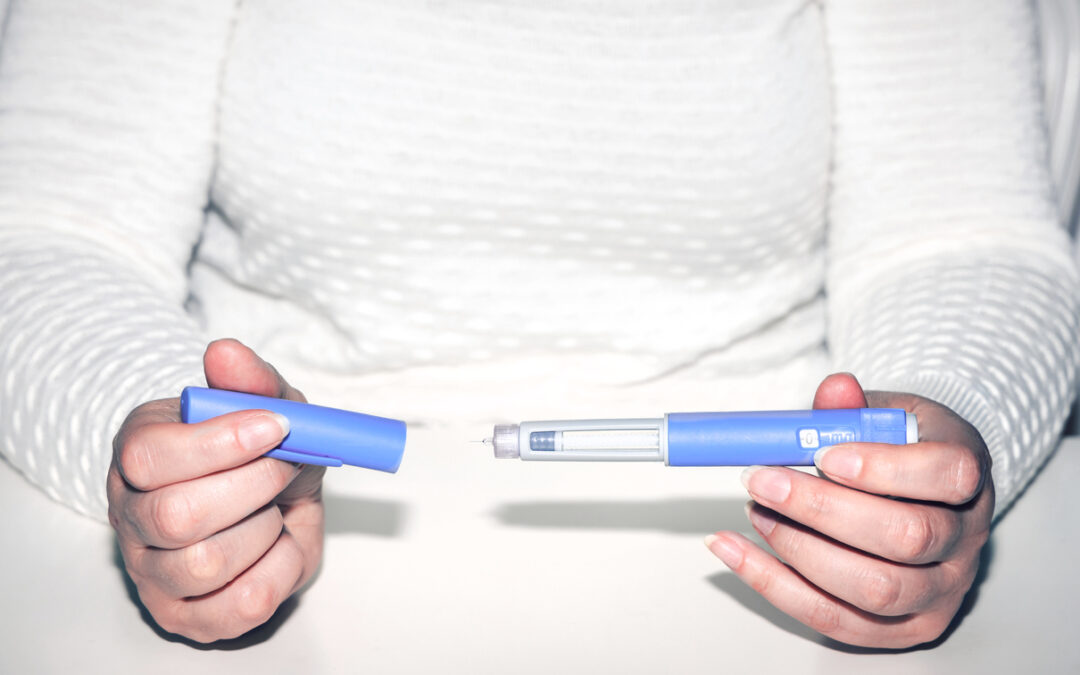Dozens of new diabetes medications have been linked to severe, life-threatening side effects like pancreatic cancer, thyroid cancer, and ketoacidosis. Drug-makers are already facing hundreds of lawsuits for selling unsafe medications and failing to warn about side effects.
What You Can Do & How We Can Help
The Schmidt Firm, PLLC is currently accepting diabetes drug induced injury cases in all 50 states. If you or somebody you know was diagnosed with cancer or ketoacidosis, you should contact our lawyers immediately for a free case consultation. Please use the form below to contact our Defective Drug Litigation Group or call us toll-free 24 hours a day at (866) 920-0753.
Diabetes Drugs and Stomach Paralysis
Lawsuits are being filed by people who were diagnosed with stomach paralysis after using diabetes drugs like Ozempic, Mounjaro, and others. These new diabetes drugs mimic a hormone that makes people feel full, which can help with weight-loss and controlling blood-sugar levels.
Unfortunately, they may also slow down digestion so much that a person develops gastroparesis, a severe side effect that can cause extreme nausea, vomiting, pain, bloating, malnutrition, and other health problems.
Incretin Therapy and Pancreatic Cancer
There is new evidence that diabetes drugs in the incretin mimetic class may increase a patient’s risk of pancreatic cancer. These drugs work by increasing hormones that cause the pancreas to produce more insulin. The FDA has been investigating pancreatic side effects since 2007.
Incretin mimetic diabetes drugs include:
- Exenatide (Byetta, Bydureon)
- Liraglutide (Victoza)
- Sitagliptin (Januvia, Janumet, Janumet XR, Juvisync)
- Saxagliptin (Onglyza, Kombiglyze XR)
- Alogliptin (Nesina, Kazano, Oseni)
- Linagliptin (Tradjenta, Jentadueto)
Byetta and Thyroid Cancer
The first incretin mimetic on the market, Byetta, has also been linked to a risk of thyroid cancer. In October 2009, the FDA asked drug-makers to “explore a potential signal of a serious risk of thyroid cancer.” The agency was concerned about studies in rodents suggesting that incretin therapy could lead to thyroid C-cell carcinoma (medullary thyroid cancer).
Onglyza and Heart Failure
In Febuary 2015, the FDA announced that it would investigate the risk of heart failure from Onglyza. The agency was concerned about a 27% increased risk of hospitalization for heart failure, and a possible increased risk of all-cause mortality (death) that was seen in the SAVOR clinical trial.
SGLT2 Inhibitor Diabetes Drugs Linked to Ketoacidosis
In December 2015, the FDA reported that 73 cases of ketoacidosis had been linked to SGLT2 inhibitors between March 2013 and May 2015. All of the victims were hospitalized. Unusually, some patients had blood-sugar levels that were only slightly higher than normal.
Diabetic Ketoacidosis (DKA) is a life-threatening condition that occurs when the blood is too acidic due to toxins called ketones. It is easily treatable in the hospital, but without treatment, it can be deadly.
SGLT2 inhibitor diabetes drugs include:
- Invokana (canagliflozin)
- Invokamet (canagliflozin and metformin)
- Farxiga (dapagliflozin)
- Xigduo XR (dapagliflozin and metformin extended-release)
- Jardiance (empagliflozin)
- Glyxambi (empagliflozin and linagliptin)
- Synjardy (empagliflozin and metformin)
About Class Actions
Class action make sense when many people suffer the same injury, but the damages are not significant enough to justify the cost of individual legal representation. The class action represented by one law firm and a plaintiff known as the “class representative.” If damages are awarded, they are usually split up evenly among the members of the class action lawsuit.
Why Our Law Firm is Filing Individual Lawsuits Instead of a Class Action
The problem with a class action is that members could be forced into a “low-ball settlement” with high lawyer’s fees and few options for seeking additional compensation.
Furthermore, even if the class action lawsuit is awarded damages, plaintiffs would be forced to share it among each other. The individual payout might be less than their medical expenses, cost of future care, etc.
Instead of a class action, we are filing individual lawsuits. We specialize in helping victims of defective drugs file lawsuits against pharmaceutical companies. If you were injured by a defective drug and you decide to file a lawsuit, you could receive compensation for your:
- Pain and suffering
- Lost income or employment
- Cost of medical treatment
- Disability
- Wrongful death
- Punitive damages
Do I have a Diabetes Drug Class Action Lawsuit?
The Schmidt Firm, PLLC is currently accepting diabetes drug induced injury cases in all 50 states. If you or somebody you know was diagnosed with cancer or ketoacidosis, you should contact our lawyers immediately for a free case consultation. Please use the form below to contact our Defective Drug Litigation Group or call us toll-free 24 hours a day at (866) 920-0753.
Attention Lawyers: We consider a referral from another law firm to be one of the greatest compliments. If your firm is interested in referring us a case or for us to send you a list of previous award judgments and/or average referral fees, please visit the Lawyer Referral section of our website.


 The Schmidt Firm, PLLC has been recognized as one of the nation’s leading plaintiffs' law firms and handles cases in all 50 states. We are very proud of our legal achievements, but equally self-respecting of our firm's reputation for providing personal attention to each and every client we represent.
The Schmidt Firm, PLLC has been recognized as one of the nation’s leading plaintiffs' law firms and handles cases in all 50 states. We are very proud of our legal achievements, but equally self-respecting of our firm's reputation for providing personal attention to each and every client we represent.

